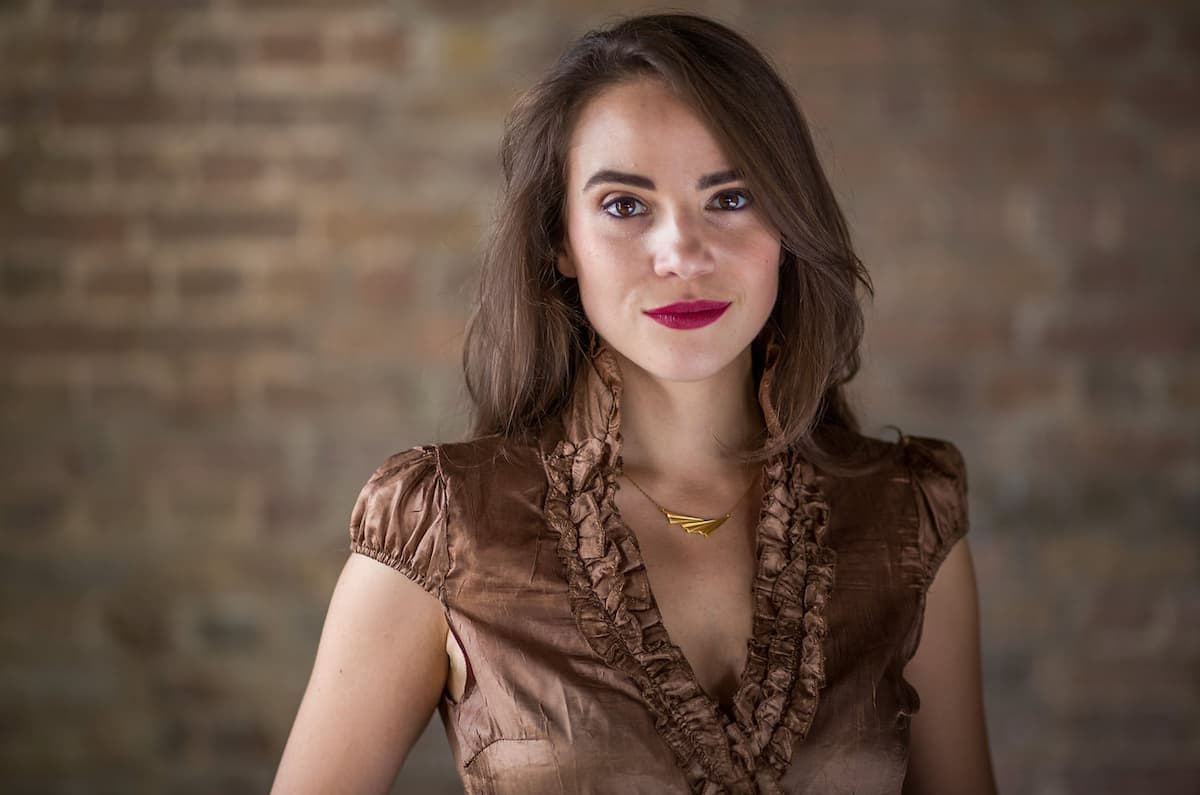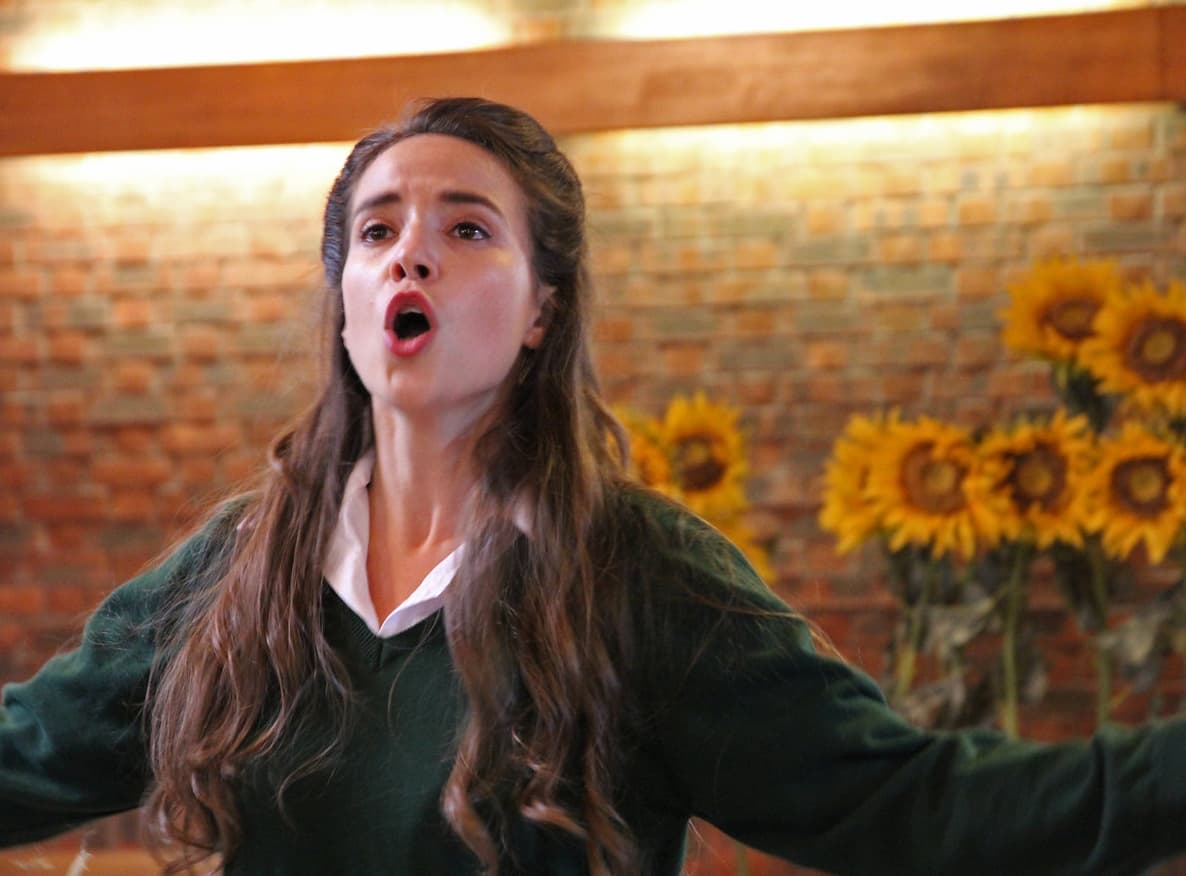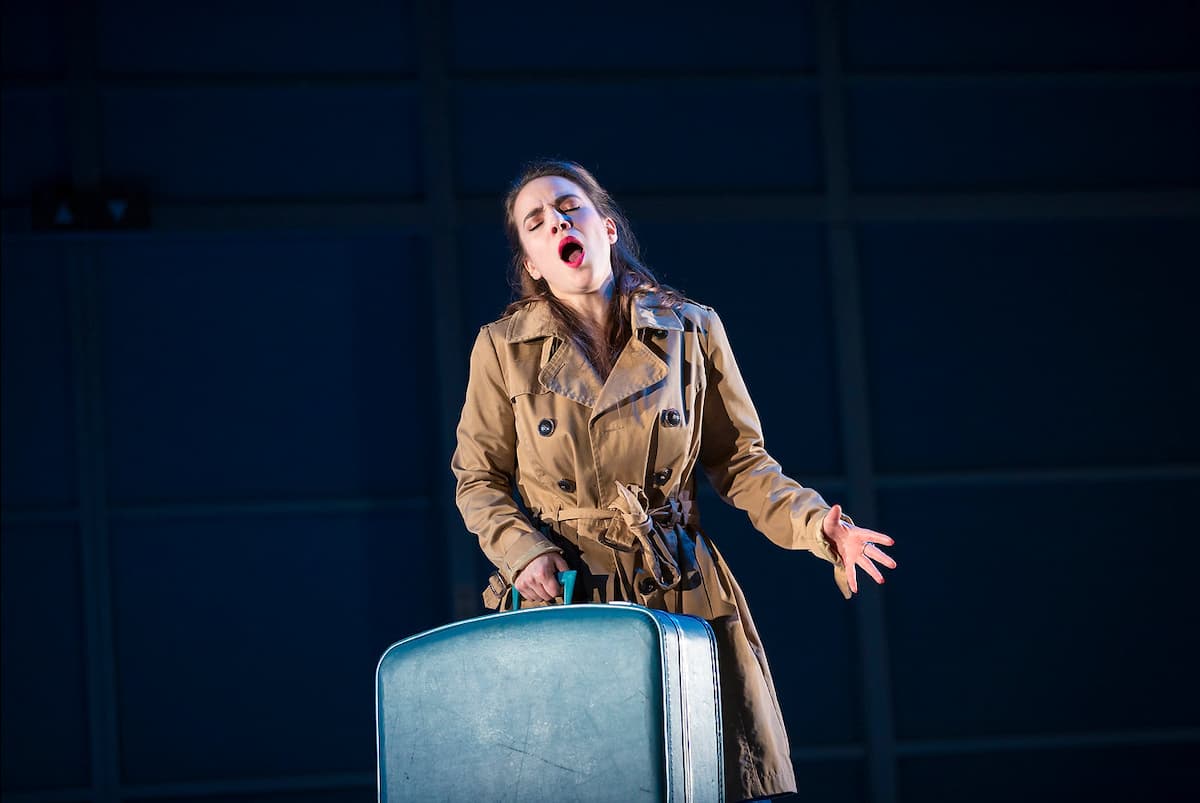‘So Much to Discover’
UK-based Spanish soprano Lorena Paz Nieto is equally at home in the worlds of opera and song. As well as already landing leading roles in operas by Donizetti, Mozart, Handel, and Britten, Lorena is a previous winner of the Oxford Lieder Young Artist Platform award and gives regular song recitals at home and abroad.

Lorena Paz Nieto © 2019 by Lorena Paz Nieto
Her work in the recital room feeds her performances on the opera stage, and vice versa: this artistic symbiosis informs a lot of what she does and inspires her to create unique programmes that reflect her interests in a wide range of styles, traditions, and backgrounds.
Lorena’s solo album of contemporary Spanish songs Cantando a Dos Poetas was released in 2022 and is reflective of her passion to explore, inspire, and educate.
María José Arenas. Ni aurora fue. Lorena Paz Nieto, soprano – Albert Nieto, piano
Was music around you growing up?
Not really. I think my family all like music but I am the first musician in the family. I have heard that my grandma’s sister had a voice, that she was the singer of the family and would sing at parties, but that is the closest we get to someone being musical.
At four years old I was doing ‘Lorena’s Show’ every Saturday. And my audience was not voluntary! I put on my mum’s clothes, I said ‘You guys sit and watch me do my thing.’
How did you get into singing?
I always loved singing. There would be some music around the house, my family liked it, but there wasn’t anything specific, especially not opera.
It was not until around age 15 or 16 that I was still doing ‘Lorena’s Show’ on Saturdays, and my older sister was like, ‘Ok, we need to find a place where she can learn how to shout because we want her out!’.
I was lucky that my first teacher, Luz Alonso, was a soprano, but up to that point, I had no musical background. I didn’t read music, I didn’t know what notes really were – I knew what a crotchet was from school, but I didn’t have a real understanding.
And this woman who was a soprano unveiled a world of possibilities. It was just the beginning of this path, of this strange journey.
Throughout my studies, I was fortunate to work with many inspiring teachers and coaches: Kate Paterson and Lada Valešová at the Guildhall, and Audrey Hyland, Iain Ledingham and the late Phil Doghan at the Academy.
Phil was such an inspiration and was so generous. We lost him just before the recent pandemic, and he’s still sorely missed.
How did you settle on opera?

© 2019 by Lorena Paz Nieto
Singing was always the aim; what style to go for, that’s something I didn’t know. I didn’t even think at that time that opera was a possibility. I just didn’t know it. And when I started singing opera I realised, ‘Ok, I can do this, and I like this.’
My first opera was Benjamin Britten’s The Little Sweep, and I loved it, I loved the drama. I think I loved all the aspects that come with opera, and with song: that you really get into the characters and into the drama.
I come from a very humble background. My mum was a cleaner – she’s retired now – and my dad was also a cleaner, and sadly passed when I was four years old.
Money was not a big thing, and a career in performing was something to be very wary of, because for a family who worked so hard to get everything that they got, where is the stability with performing?
My mum would pay for my singing lessons as long as I was also going to do something else. When I started conservatoire in Santiago it was also my first year of university, studying social education. For three years I was going to uni in the morning, driving 60 miles in the afternoon, and going to the conservatoire in a completely different city.
How has that informed your attitude to your work?
I completely understand what she did it for, and it has shaped so much of who I am as a performer now. The social aspect is core to how I approach music.
I do a lot of outreach and educational projects, for example with Jackdaws and their educational opera project OperaPlus, and when I was at college I would always try to get involved. At RAM I was involved with Open Academy, taking part in projects such as Silver Sunday at the Wigmore Hall, an event for sufferers of Dementia. I think it gives you so much perspective about this business that can be so weird at times.
I love it, but sometimes it can be all about the image, and the core point of music gets lost in the process, so all of those projects, thanks to my background and former education, keep me grounded when it matters, and shows what music really can be. It’s not just about the ultimate project or performance, but everything that is achieved throughout the communication, the motor skills, the brain. For me, music is a vessel.
It’s a funny job. I’m aware that things can change at any point, and while it lasts I’ll enjoy it. If anything at some point isn’t for me, I’ll let it go and enjoy what I’ve done so far.
Singers, perhaps more than other musicians, have more of an uncertain path through their careers since they are at the mercy of how their voice develops.
Absolutely. You do form your instrument but at the same time, you have no control over it: it is what it is. If you play the violin you don’t play the cello. At the end of the day, you might hope that your instrument is a cello but you might be a violin!
I like the roles that are available to me. For me, there was only one role I wanted to do before I die, Susanna from The Marriage of Figaro, and I did it last year, hooray! But I also knew that the role, vocally, the character, everything about it, fit me well.
It was a really interesting project but other than that I just think I don’t like to have too strong an opinion on what I want to do. I think I’ve learned so much, so many times, in roles that I had no idea were available to me, so it’s more of a ‘self-journey’ on what roles are there. And sometimes people get fixed on ‘I want to be Violetta’ or ‘I want to be Mimi’ – if it is for me I will be, but there are so many other roles.
You can’t decide everything. There’s so much to discover still.
Albert Nieto. Besos. Lorena Paz Nieto, soprano – Albert Nieto, piano
Song also is a large part of your work. Was that always something you wanted to explore?
I love song. It’s funny – I remember finishing up at Guildhall and thinking I was all about opera, that’s what I needed to do, and that’s why I went to the Royal Academy.
But funnily enough it was getting to the Academy, finding the right pianists, working with people like Audrey Hyland and Richard Stokes, and winning the Oxford Lieder Festival Young Artist Platform, that made me realise song is so cool!
I love songs. They are in a way like mini operas. There is a whole character, and if anything, sometimes it is more demanding than an opera, because maybe you have 20 characters in an hour, whereas in opera you have a costume, loads of rehearsal, and you know who you are: for an hour you’re one person.
But with song recitals, you’re completely jumping through the emotions and through the years, experiences, ages – there’s so much in there.
Does that give you something to take back into your opera work?
I think both help each other. Song is very useful because you have a much deeper connection to your audiences with song. In opera there is a whole orchestra, there is a stage, there is distance, and there are so many people involved, but in a song recital, just by the nature of it, there are fewer people, the venues are smaller, and you feed way more from that energy.
I think there is more left to the moment with song. The risks you take: the way I practise a song one way but then suddenly you’re in the performance space and you go very quiet or very loud, you feed more on the energy of the room, I think. It’s terrifying but exciting.
Do you think you will keep doing both opera and song, or go more into one or the other?

© 2019 by Lorena Paz Nieto
I don’t see why particularly I would have to let song go. I released my first solo CD last year, Cantando a Dos Poetas and it’s all contemporary Spanish songs.
It’s a very beautiful project, curated by the pianist and composer Albert Nieto who, despite the surname, is not related to me! It’s about two-woman poets from Spain, Ángela Figuera and Carmen Conde, who both chose inland exile: in Franco’s time, instead of leaving the country they were against Franco but they both stayed.
There are a lot of things that connected them: they both lost a baby at birth, they both were teachers, poets, and socialists, and the whole programme was curated with new compositions by people from places where Figuera and Conde lived.
We’ve been touring it quite a lot, and I can’t imagine song not being a part of me. I don’t think it has to be exclusive, and I think especially once you prepare one or two recitals they come back many times, if it is a good programme, if it is something solid.
Revisiting music over time also gives it a chance to grow with you.
I do like the curation aspect of song recitals. I have done quite a few, especially because of the Oxford Lieder festival which of course led to many other things.
I like selecting things, I like taking the time to think how I can give people something of me, how to make it interesting. I’m not one to do a lot of all-Schubert recitals, for example. That’s just not me.
I will have Villa-Lobos, and the Spanish stuff, and German translations of Spanish poems, and Clara Schumann and Mahler, but not ‘this is a woman’s recital.’ For me, my main goal with song recitals is to bring in those things without making a point about bringing those things in. That’s what I hope it will be.
You get a concert of women composers, or a Spanish music recital, a Japanese music recital, and of course, you need to have those, but I want recitals that have all of that but that aren’t ‘I’m being a champion of this music.’ I am just being a musician who is able to see how amazing this music is and that it deserves a space without all these lights. It’s just good music.
I want to discover new things, I don’t want to be sat on the same things forever.
Who or what inspires you?
Being a bit of a cliché, what inspires me in my life is all around me. Sometimes it’s not about music: it’s my family, someone like my mum, losing her husband so early on and working through it and having three little girls.
Life inspires me, and I do think that is part of my formal training. It’s clichéd, but it really does.
Sometimes even a bird just flying by on the right amount of light – you can’t describe it. I think you can describe inspiration too much: sometimes it’s just when something really springs out of nowhere that is what really inspires me sometimes.
For more of the best in classical music, sign up to our E-Newsletter




